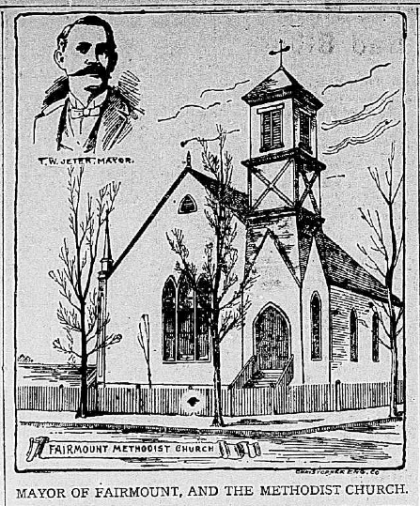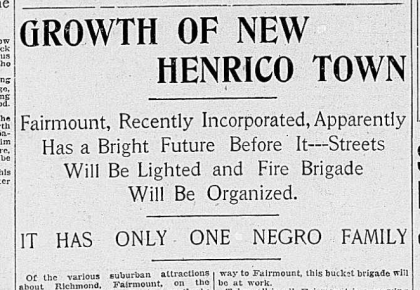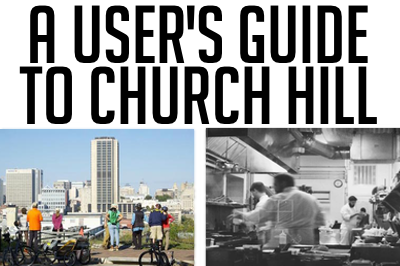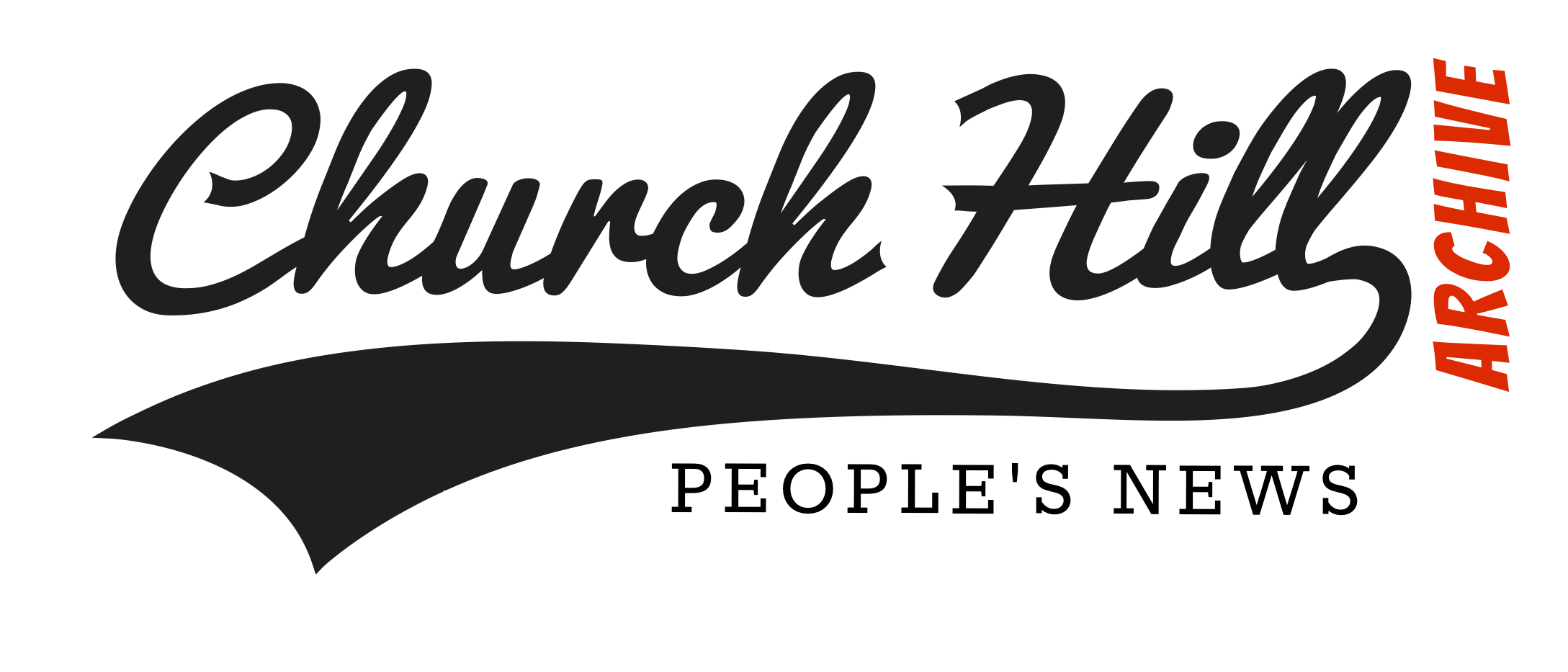RECENT COMMENTS
Fairmount Apparently Has a Bright Future Before It
From the April 06, 1902, issue of The Times (PDF), a Richmond daily:
Of the various suburban attractions about Richmond, Fairmount, on the easternmost end of the city, in a northerly direction, is perhaps the largest and the most flourishing. Formerly a part of Henrico county and later a special district controlled by a Board of Commissioners, it is more recently an incorporated town, with a Mayor and Council.


From the original article (PDF):
Of the various suburban attractions about Richmond, Fairmount, on the easternmost end of the city, in a northerly direction, is perhaps the largest and the most flourishing. Formerly a part of Henrico county and later a special district controlled by a Board of Commissioners, it is more recently an incorporated town, with a Mayor and Council.
Indications other than these progressive steps point to the future development of Fairmount. Houses are going up now in considerable number and others are to be erected. The condition of those dwellings already there is excellent. There are no negroes in the place and the sight of a saloon in Fairmount has not been seen for many a day. Under the new regime, various improvements will be made in the way of sanitary conditions — streets, lights and other things. The town, in fact, while not booming, is keeping well up to the modern pace and shows no sign of a Iagging stop.
HISTORY OF THE PLACE
Fairmount was separated from Henrico county something over two years ago and was established as a special district. Prior to that time for several years it had been in the hands of the Fairmount Land Company. As a special district, the management of the affairs of the place was vested in a Board of Commissioners. consisting of four or five well-known gentlemen, residents of the district. Until a short time ago this arrangement was ln force, when the people got tired of the special-district scheme. Finally at a special meeting the commissioners rendered an account of their stewardship and stepped down and out in favor of some other plan. Some wanted to return to the county, but the progressives, who realized that this would be a backward stop were in the majority and carried the day for incorporation. The necessary papers were drawn up, and Mr. Thomas W. Gardner, representative from Henrico in the House offered a bill giving the town a charter.
Meanwhile an election had been held and the first Mayor was chosen in the person of Mr. T. Walker Jeter, a well known young man of the county. A Council. consisting of five members, were also chosen. When the charter had been gotten Mr. Jeter was promptly sworn in and the little suburb began its life as an incorporated town.
The boundaries of the town show it to be perhaps the largest suburb around Richmond. Its eastern end corresponds with Twenty-fourth Street. while on the west it is bounded by the Mechanicsville Turnpike. On the south it ends at Q Street and on the west at the farm of Mr.W.H.Brauer. Since the incorporation the place has been divided into five wards.
At the present time there are in Fairmount about 175 houses, mostly plain and of frame, but substantial and neat. The population is made up of about 700 white persons. By a stipulation made when the Fairmount Land Company was in control, no property can be sold to negroes, certainly not before 1917. There is, however, one negro family in Fairmount, which was there before the land company came into possession, and which now won’t get out. In addition to the houses already in the place, there are sixteen others now in course of construction, and five more are to be built later. These houses are to be sold to actual settlers on accommodating terms as to cash and time. Other inducements likely to attract desirable residents are offered.
Conspicuous among the larger buildings in the place is the Fairmount Methodist Church, of which the Rev. J. O. Babcock is the pastor. The Fairfield High School building is also noticeably present. It is situated at Twenty-first and T Streets, and is a large brick building, one of the best of its kind in Virginia outside the larger cities. There are 6 or 7 teachers in the school and about 450 pupils. Three large grocery stores also grace the new town of Fairmount. The Baptists are building a church which is to be one of the most handsome in the East End and the Christians are looking-out for a lot on which to build. Last, but not least, Fairmount boasts a street car line, which runs on a schedule which will be improved very shortly.
WHAT WILL BE DONE
These things Fairmount already had before it was a town. Now that it has become incorporated other things are to follow. A census of the town has just been taken by the Councilmen. The sanitary conditions, which always have been good, will be improved. Some system of lighting the streets will be adopted and, what no other town has,perhaps, an adjunct system for lessening the danger of fire. The Richmond department attends fires in Fairmount and yet the people want lo be safer still. A bucket brigade will be organized, and while the fire department, in the instance of a fire, is on its way to Fairmount, this bucket brigade will be at work.
Taken all in all, Fairmount is a growing and attractive place. In the spring and summer the trees planted along the streets are green and shady. lt is also healthy there, and the present residents are sober, self-respecting folk. By a special provision in the charter no saloon is to be allowed in the place unless a majority of the residents give their consent.
The Council of Fairmount consists of five members, one from each ward. They are, at present, as follows: First Ward, Mr. S. A. Allen; Second Ward, Mr. Joseph L. Gregory; Third Ward, Rev. Joel T. Tucker; Fourth Ward, Mr.William H. Burkert; and Fifth Yard, Mr Mr. F. Delaney. The town clerk is Mr. Dolaney, and the town sergeant is Mr. S. A. Allen, Jr.
The first mayor of Fairmount, as stated above, is Mr. T. Walker Jeter, now deputy treasurer of Henrico. Mr. Jeter is an energetic young man and will make an excellent mayor. He thinks that the town is capable of development and is prepared to lend his energies to do his best for it. Mr. Jeter has been in the treasurer’s office since 1899, when he succeeded his father to the position. Before that time, for thirteen years or more, he was a clerk in the employ of the Chesapeake and Ohio Railway.






Extremely interesting find, John.
And I’m going to give a “Praise God” that all of us in Fairmount have matured past the noted ignorance:
“There is, however, one negro family in Fairmount, which was there before the land company came into possession, and which now won’t get out.”
omg.
Ditto on kat’s sentiment. omg.